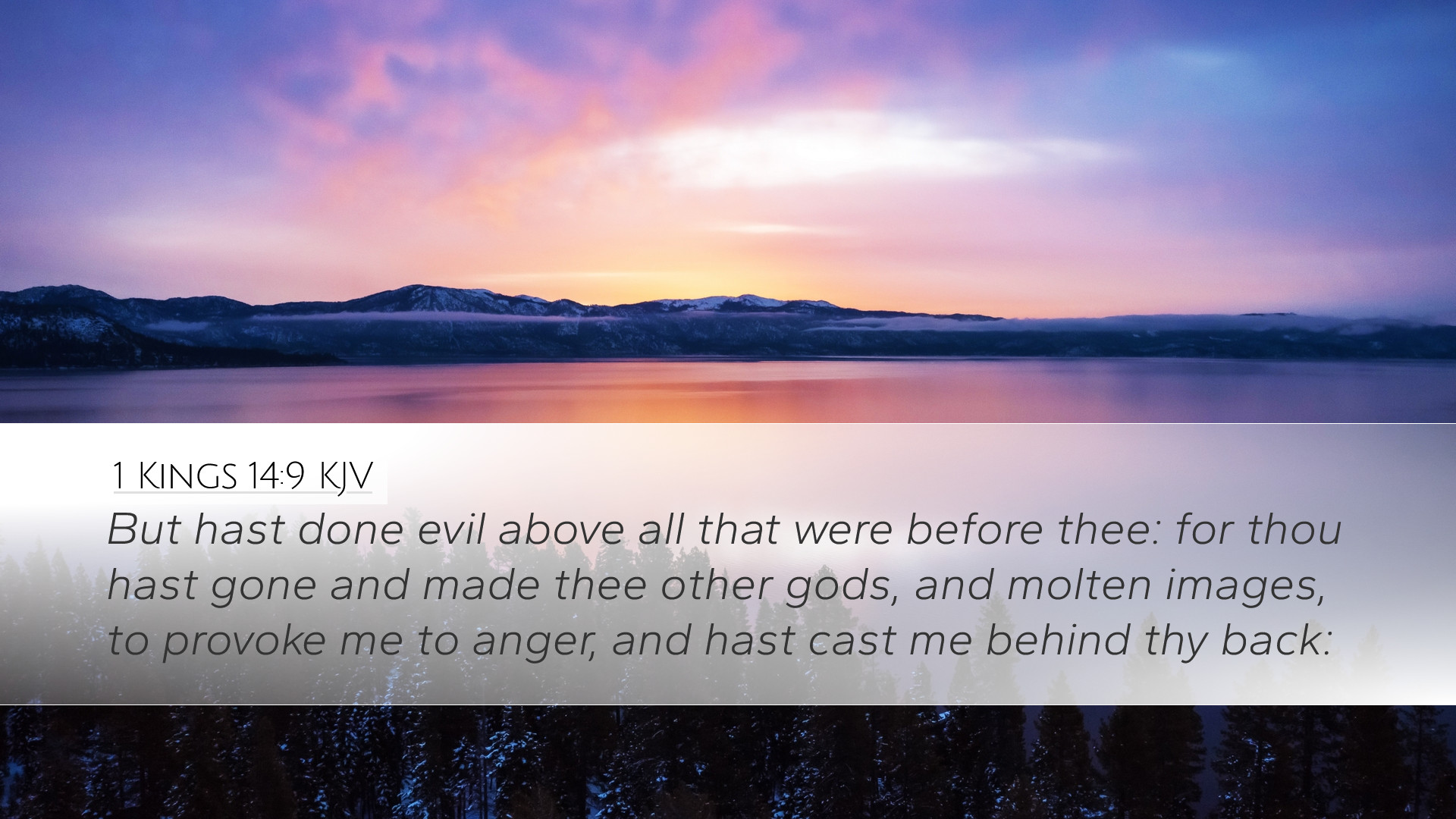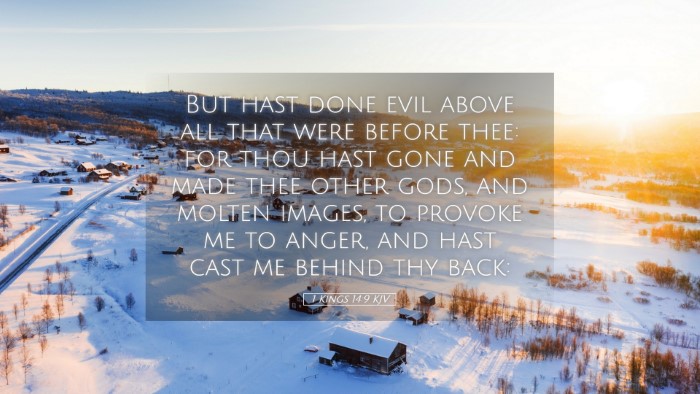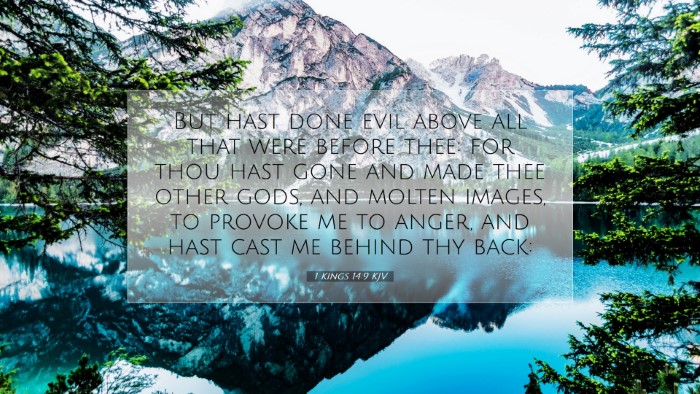Commentary on 1 Kings 14:9
"But hast done evil above all that were before thee; for thou hast gone and made thee other gods, and molten images, to provoke me to anger, and hast cast me behind thy back."
Introduction
This verse presents a severe condemnation of King Jeroboam of Israel, highlighting his idolatry and the consequent anger it provoked in God. Public domain commentaries provide important insights into the implications of Jeroboam's actions, the nature of his sin, and the broader theological messages that resonate throughout Scripture.
Historical Context
Jeroboam, the first king of the northern kingdom of Israel following its division from Judah, faced immense pressure to consolidate his rule and establish a distinct identity for his newly formed nation. The historical backdrop of this period was marked by political instability, religious fragmentation, and the challenge of maintaining allegiance in a kingdom that had split from the house of David.
Commentary Insights
- Matthew Henry: Henry observes that Jeroboam's sin was not merely a private failing but a public scandal that led Israel into idolatry. His actions were seen as an egregious departure from worshiping Yahweh, setting a precedent for further sin within the nation.
- Albert Barnes: Barnes discusses the folly of Jeroboam’s attempts to create an alternative religion that would satisfy the people’s need for worship while simultaneously deviating from God’s commands. He notes that this strategy ultimately failed and led to further decline.
- Adam Clarke: Clarke emphasizes the seriousness of provoking God to anger. He reflects on the nature of idolatry and how Jeroboam's creation of golden calves not only signifies a rejection of the God of Israel but also a blatant breaking of the covenantal relationship established with the people.
Theological Implications
This verse is rich with theological implications regarding idolatry, the sovereignty of God, and human responsibility. It serves as a stark reminder of how leaders can lead their followers into spiritual demise through disobedience.
Idolatry and Its Consequences
Jeroboam’s decision to make other gods was ostensibly a pragmatic one, meant to keep the people from returning to the worship in Judah. However, this decision had spiritual repercussions, which all three commentators highlight:
- Moral Degeneration: Each commentator agree that Jeroboam’s idolatry led to moral and spiritual decay. Worship shifted from the living God to crafted idols, which lacked any divine authority or spiritual life.
- Provocation of Anger: The text indicates that God felt provoked to anger not only by Jeroboam's individual actions but by the collective actions of the people turning toward idolatry.
- Covenantal Breach: Adam Clarke illuminates the concept of covenant in Scripture, asserting that Jeroboam’s sin was a breach that endangered the relationship between Israel and God.
Application for Today
The lessons drawn from this passage are timeless and resonate with modern audiences, especially pastors and theologians as they navigate the complexities of faithfulness in contemporary worship contexts.
- Leadership and Responsibility: Leaders are reminded of their profound responsibility to guide their communities faithfully in worship and doctrine.
- Vigilance Against Idolatry: Just as the Israelites fell prey to idols, contemporary believers must be wary of modern forms of idolatry that can distract from genuine worship of God.
- God's Justice and Mercy: The verse indeed highlights God's righteous anger but also reflects His deep desire for His people to return to Him. This aspect should inspire hope and encourage repentance.
Conclusion
1 Kings 14:9 serves as a theological and moral reminder of the consequences of deviating from God's commands. Through the insights of prominent commentators, we see the intertwining of historical context and profound spiritual truths that challenge both leaders and congregants to remain faithful to the covenant with God. In an age where idolatry can take many forms, this passage calls believers to create a spirit of fidelity and devotion, ensuring that God remains at the center of worship.


